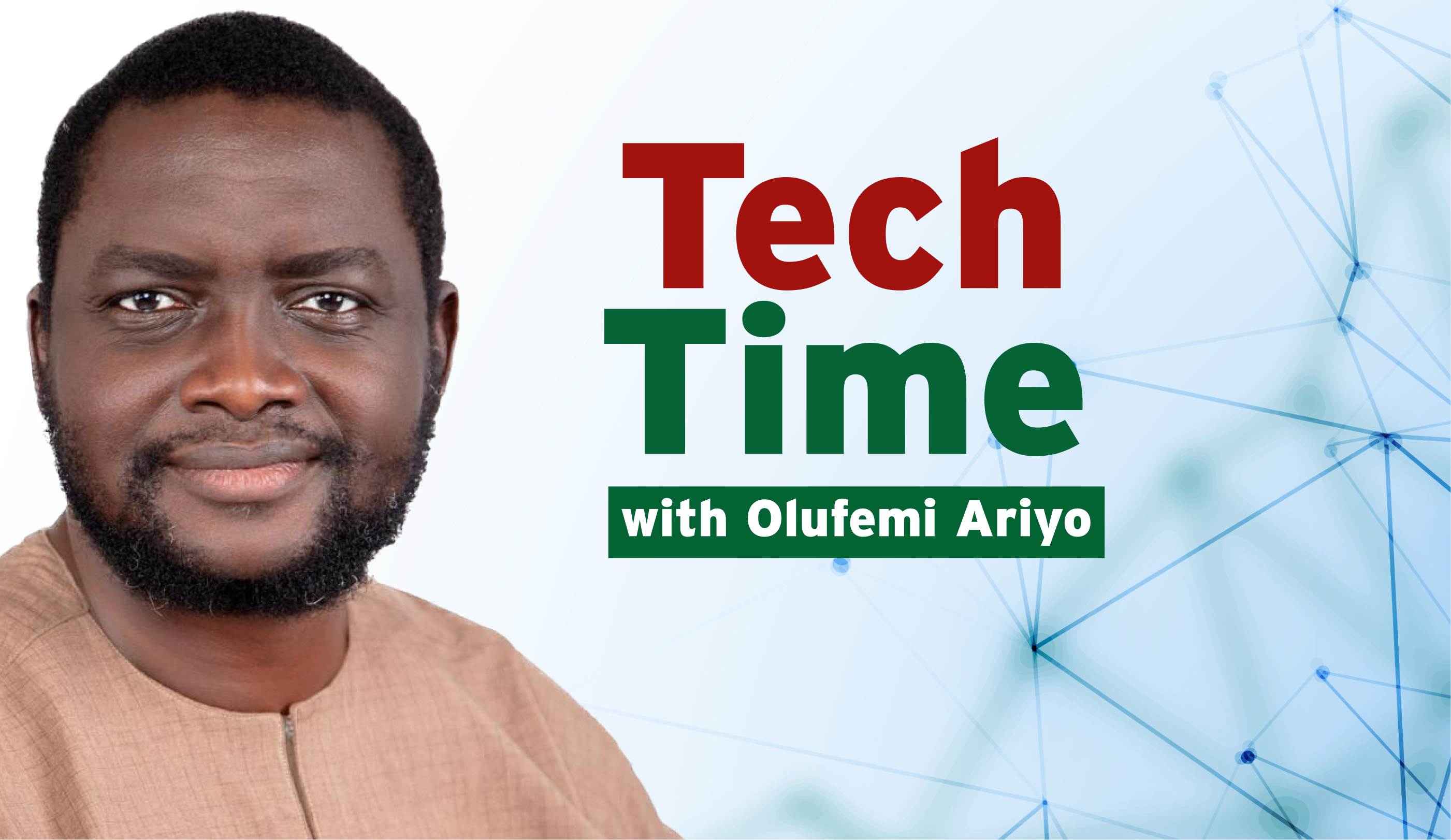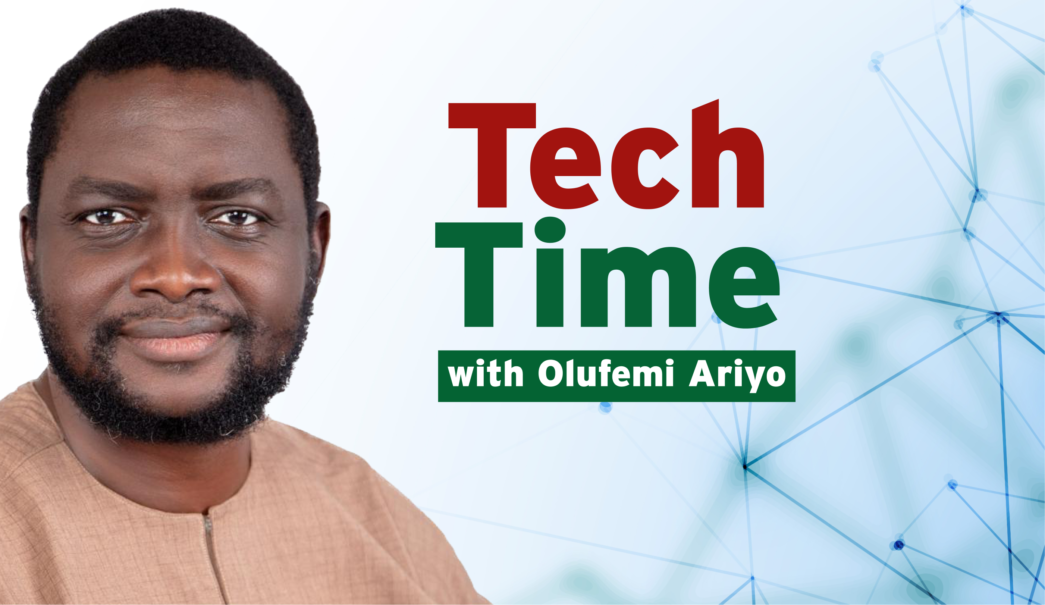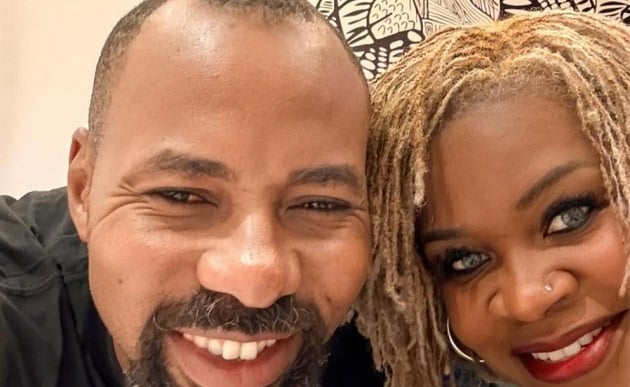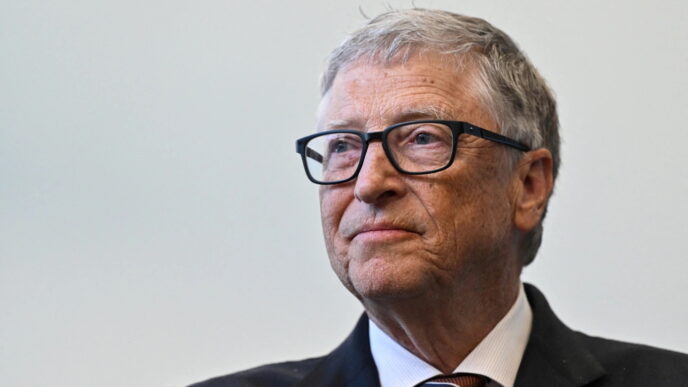Charles Darwin posited that, “It is not the strongest of the species that survives, nor the most intelligent, but the one most responsive to change.” Welcome to the age of rapid and relentless transformation — a time when machines can now reason, borders have become fluid to the movement of ideas, and each ping from our devices pulls us deeper into a world of infinite noise. Amid this digital deluge, many, particularly young people, are feeling increasingly burned out, disengaged, and unmoored. Yet, perhaps the issue is not just poor mental health, but something deeper and more systemic: the absence of mental wealth — the intentional design of environments, relationships, and cultures that enable individuals to feel resilient, fulfilled, and connected. What if our challenge is not merely to fix what is broken, but to build what is missing? Not just to treat anxiety or depression, but to reimagine how we work, learn, and live — so that meaning, purpose, and community are built into the fabric of daily life.
From Burnout to Breakthrough: Why Mental Wealth Matters
Today’s mainstream approach to mental health is largely reactive, focused on crisis response through therapy, medication, or stress management. These are undoubtedly vital tools, especially in acute cases. But they are not enough. What is missing is a preventive, empowering, and holistic ecosystem — one that does not wait for people to break down before offering support, but instead actively builds the inner and outer structures for thriving. We call this mental wealth: a framework that embeds well-being into the very design of how we work, learn, and live. It is not just the absence of illness, but the presence of:
- Meaning in work – where people feel their contributions matter, and are aligned with their values and strengths.
- Autonomy in learning – where individuals are empowered to explore, create, and grow at their own pace, guided by curiosity, not just compliance.
- Belonging in community – where social trust, support, and connection are deliberately cultivated in both physical and digital spaces.
Mental wealth is the invisible infrastructure that enables people to flourish, not just function. And in the digital age (where change is constant and disconnection is common) building such infrastructure is not a luxury; it is a necessity.
Advertisement
To understand what this looks like in practice, let us examine three countries at different stages of development and cultural evolution: Nigeria, a vibrant but structurally strained African nation; Finland, a European exemplar of social innovation and well-being; and Singapore, a highly digitised, future-focused state with an eye on both performance and human capital. Each offers important insights and contrasts on how mental wealth is either cultivated or constrained.
- Nigeria: The Cost of Disconnection and Uncertainty
Nigeria is a nation of extraordinary potential — home to over 230 million people, with more than 60% under the age of 25. On the surface, this seems like a demographic advantage — a so-called “youth dividend.” But for many Nigerian young people, this promise has not translated into opportunity. Instead, they find themselves caught in a persistent cycle of educational mismatch, chronic underemployment, and systemic disempowerment.
As economic uncertainty deepens and societal trust frays, a silent crisis is brewing beneath the surface — one of rising depression, anxiety, substance dependency, and a widespread sense of disconnection and disillusionment. These mental health issues are grossly underreported, under-diagnosed, and under-addressed, largely due to stigma, lack of infrastructure, and inadequate public awareness.
Advertisement
Key Challenges: A System Misaligned with Human Flourishing
- Education as a Pressure Cooker, Not a Launchpad:
Nigeria’s education system remains largely exam-oriented, with a focus on rote memorisation over critical thinking, creativity, or emotional intelligence. Many students graduate with certificates but without skills, thrust into a labor market that no longer rewards formal credentials alone. - Work as Mere Survival, Not Self-Expression:
Employment opportunities, when they exist, are often transactional, unstable, and informal. The gig economy is expanding, but without safety nets or clear career paths. Youth are forced into hustle culture, measuring worth by income, not by impact or growth. - Community in Collapse, Culture in Transition:
Traditional forms of support — extended families, faith institutions, neighbourhood collectives — are increasingly fragile due to urban sprawl, insecurity, digital migration, and economic stress. Online spaces offer some sense of belonging, but also bring new anxieties: comparison, misinformation, and identity crises.
The Result: A Generation in Paradox
Nigerian youth are among the most digitally connected, yet many feel deeply disconnected — from themselves, from opportunity, from community, and from a vision of the future. They are wired in but burned out. They speak the global language of tech and trends, yet often lack the local platforms to build meaning and agency in their own lives.
Where Is Mental Wealth Missing?
Advertisement
What is lacking in Nigeria is not just more psychologists or better hospitals — though those are crucial — but an ecosystem that proactively nurtures well-being, creativity, and belonging. In other words, mental wealth.
A mentally wealthy Nigeria would look like this:
- Education That Inspires, Not Just Instructs:
Classrooms would cultivate purpose, agency, and emotional intelligence, alongside academic achievement. Schools would integrate life design, entrepreneurship, mental health literacy, and digital fluency into the core curriculum. Learning would be active, not passive. Imagine a public secondary school in Kaduna where students are tasked with creating community-based solutions to real problems — such as designing mobile handwashing stations using locally sourced materials to combat hygiene-related illnesses. As they collaborate across subjects like science, civic education, and technology, they also engage in group reflections on resilience, empathy, and leadership. This approach not only builds academic skills but also instills a sense of purpose, ownership, and emotional intelligence — the building blocks of mental wealth. - Work That Elevates, Not Just Extracts:
Workplaces, from startups to government agencies, would value human capital as much as financial capital. Young people would be encouraged to innovate, collaborate, and lead, with policies that support mentorship, creative freedom, and work-life integration. Think of a renewable energy startup in Abuja that not only provides flexible work hours and hybrid options, but also runs a monthly “Innovation Day,” where every team member (from interns to executives) pitches ideas to improve sustainability or workplace culture. New hires are paired with mentors for the first 90 days, and weekly check-ins include both project updates and well-being conversations. This kind of environment does not just retain talent — it elevates it, turning work into a platform for both impact and personal growth. - Communities That Connect, Not Just Coexist:
Investments in safe public spaces, digital community platforms, local leadership initiatives, and culturally relevant mental health interventions would help restore a sense of belonging and shared identity. Both online and offline, youth would feel seen, supported, and safe. For example, in Kaduna State, a youth-led initiative called Safe Circles partners with local mosques, churches, and community centres to host weekly gatherings that blend storytelling, music, and guided conversations about mental health and identity. These sessions are supported by trained peer facilitators and live-streamed on Instagram and WhatsApp for broader reach. Young people from diverse backgrounds use the platform to share struggles, celebrate wins, and build authentic relationships — showing how community can be designed with inclusion, culture, and emotional safety at its core.
Mental Wealth as a Nation-Building Priority
Mental wealth is not merely a personal issue but a national imperative. Without it, Nigeria risks a lost generation: brilliant, energetic, and eager — but psychologically drained, directionless, and detached. But with it, the same generation could become the architects of a new social contract, one that combines resilience with innovation, and identity with impact.
Advertisement
It is time to move from short-term interventions to long-term systems – from managing crises to designing for flourishing.
- Finland: A Blueprint for Mental Wealth Through Design
Finland consistently ranks at or near the top of global happiness and well-being indices — including the World Happiness Report, where it has held the number one spot for several consecutive years. This level of societal well-being is not incidental. It is the product of systematic, intentional design — across education, work, governance, and community life — to promote mental resilience, equity, and purpose. In Finland, mental wealth is not treated as an afterthought or a luxury. It is embedded into the architecture of everyday life.
Advertisement
How Finland Builds Mental Wealth
- Education for Autonomy, Joy, and Mastery
Unlike many systems that emphasise pressure and performance from an early age, Finland’s education system is designed around the well-being of the learner.
Advertisement
- No national standardised tests until age 16, allowing students to develop at their own pace without constant comparison or fear of failure.
- Schools are entered on trust and professionalism — teachers are highly educated, well-paid, and given autonomy to shape their classrooms.
- The curriculum emphasises play, creativity, emotional intelligence, and problem-solving, not just technical knowledge.
- Students learn life skills such as cooperation, empathy, and mental health awareness early on.
For example, in Helsinki, schools have adopted a policy called “phenomenon-based learning,” where students explore interdisciplinary topics (e.g., climate change or inequality) through group projects, field trips, and self-guided inquiry. This builds intrinsic motivation, critical thinking, and social connection — core pillars of mental wealth.
- Work That Respects the Whole Human
Work in Finland is structured not around extraction of labor, but around sustainable productivity and human dignity.
Advertisement
- Working hours are capped by law, and overtime is rare.
- Parental leave is generous and balanced — both parents are encouraged to take time off for child-rearing.
- Remote work and flexible schedules are widely available, especially post-pandemic.
- Mental health days are culturally and legally supported, not stigmatised.
For example, many Finnish companies offer well-being allowances — monthly stipends employees can use for mental health services, gym memberships, art classes, or nature retreats. In some tech firms, there are quiet rooms and nap pods, acknowledging the need for rest and reflection at work.
- A Society Built on Trust and Belonging
At the heart of Finland’s mental wealth is its high level of public trust and social cohesion.
- The welfare state guarantees access to healthcare, education, and housing, reducing existential stress.
- Citizens feel listened to and respected by public institutions — corruption is low, civic engagement is high.
- Nature is integrated into daily life — with the Finnish concept of “Everyman’s Right” (Jokamiehen oikeudet), everyone has free access to forests, lakes, and countryside for rest, recreation, and reflection.
For instance, every year, the Finnish government organises a “National Sleep Day,” where public campaigns promote the value of rest and mental wellness. Companies, schools, and media outlets all participate, reinforcing a shared cultural narrative around holistic well-being.
The Result: Resilience by Design
The Finnish model does not eliminate mental health struggles, but it addresses them upstream. Rather than waiting for individuals to fall into crisis, it builds conditions for resilience:
- Children grow up with less performance anxiety and more confidence.
- Workers feel valued, not exploited.
- Citizens trust their institutions and believe in their collective future.
This is the essence of mental wealth: systems that create safety, agency, and meaning long before clinical interventions are needed.
Can Nigeria Replicate This? Not Exactly — But It Can Adapt the Principles
Nigeria’s demographic, cultural, and economic realities are vastly different from Finland’s. But the core ideas are translatable and transformative, if localised with intent:
- Make mental health part of policy, not charity.
Embed it into national development plans, education reform, and labor law — not just NGOs and donor programs. - Shift schooling to emphasise skills, values, and adaptability.
Move beyond exam obsession to nurture curiosity, collaboration, and civic purpose. - Encourage employers to see productivity as a byproduct of well-being.
Offer tax incentives for mental health programs, flexible schedules, and upskilling that promotes meaningful work.
Finland reminds us that flourishing is a function of design, not just destiny. With the right structures in place, mental wealth becomes not a privilege for a few, but a right for all.
- Singapore: Mental Wealth Through Systems Thinking
Singapore is a masterclass in strategic design. With no natural resources, this small island nation has transformed itself from a struggling post-colonial state into one of the most advanced economies in the world — a global hub for finance, technology, and education.
Its secret? Systems thinking: the ability to see beyond short-term fixes, connect policies across sectors, and design institutions that scale both economic growth and human development.
When it comes to mental well-being, Singapore does not view it as a standalone issue but as a multifaceted societal goal, embedded into its education system, workforce planning, housing policies, and digital ecosystem.
How Singapore Builds Mental Wealth
- Education That Evolves With the Times
Singapore’s education system is globally respected — but what sets it apart is its constant evolution. The goal is not just academic excellence; it is the development of resilient, ethical, emotionally intelligent citizens.
- Emotional intelligence and character education are part of the 21st Century Competencies Framework, taught alongside math and science.
- Schools focus on applied learning, empathy, digital literacy, and global awareness.
- Teachers receive training in student well-being and mental health support, and counselling services are embedded in every school.
For example, in 2021, the Ministry of Education launched the Character and Citizenship Education (CCE) 2021 curriculum, which includes modules on mental health, cyber wellness, and managing stress — starting as early as primary school. The goal is to build resilient students who understand their own minds and emotions, not just their textbooks.
- Workforce Planning with a Human Lens
Unlike many nations where job markets react to disruption, Singapore plans for disruption — building systems that help citizens adapt, upskill, and thrive amid change.
- SkillsFuture, launched in 2015, gives every Singaporean adult an initial learning credit to pursue professional and personal development throughout their career.
- Career pathways are no longer linear — workers are encouraged to reskill or pivot across sectors (e.g., from hospitality to AI or green energy).
- Mental wellness is increasingly being linked with employability — especially for youth and mid-career professionals navigating transitions.
For instance, SkillsFuture has partnered with institutes to offer courses on mindfulness, workplace resilience, and emotional regulation — recognising that mental agility and well-being are essential to lifelong learning and productivity.
- Designing Cities and Communities for Social Integration
Singapore does not just invest in physical infrastructure — it invests in social architecture. Singapore’s policies are intentionally designed to promote inclusive communities that support mental well-being, spanning everything from equitable housing arrangements and integrated social services to accessible digital platforms that promote connection, care, and resilience.Public housing (HDB flats) is intentionally mixed by income and ethnicity to promote social cohesion and reduce isolation.
- Community wellness hubs are emerging in neighbourhoods — offering counselling, support groups, fitness programs, and digital mental health access.
- The government runs digital platforms such as Mindline.sg, offering AI-powered mental health assessments, self-help tools, and therapy referrals — accessible, anonymous, and multilingual.
For example, Mindline.sg, launched by the Ministry of Health and GovTech, uses chatbot interfaces powered by AI to guide users through stress, anxiety, or sleep issues — with an option to escalate to professionals if needed. It represents how technology, policy, and empathy can intersect for scalable mental wellness.
The Paradox: High Achievement, High Pressure
Despite these innovations, Singapore is not immune to mental health challenges. In fact, its culture of excellence can sometimes fuel stress and perfectionism, especially among youth and high-performing professionals.
- A 2017 study by the Institute of Mental Health revealed that one in seven Singaporeans has experienced a mental health condition in their lifetime.
- Academic stress and fear of failure remain prominent concerns, with growing calls to reduce high-stakes exams and pressure in schools.
- The government is responding by redefining success, encouraging holistic education, and promoting open conversations about mental health.
A strong example is the “Beyond the Label” campaign by the National Council of Social Service, which tackles mental health stigma by spotlighting real-life stories from youth, working professionals, and families across Singapore. It reflects a shift from silence to shared responsibility.
Lessons for Nigeria: Building Systems, Not Just Solutions
While Nigeria and Singapore operate in different contexts, there are powerful transferable insights:
- Think long-term – Policies that support mental health should not be reactive, but forward-looking (anticipating demographic, digital, and social change).
- Invest in lifelong development – Like Singapore’s SkillsFuture, Nigeria could create reskilling and personal growth platforms that address both economic and emotional needs.
- Leverage technology for accessibility. AI-based mental health tools, local language apps, and community radio campaigns could reach rural and urban youth alike.
- Design cities and communities with inclusion at their core. Nigeria can take inspiration from Singapore’s focus on social integration and community support — where housing policies, public spaces, and neighbourhood initiatives are all intentionally crafted to encourage connection, trust, and mental well-being..
Mental Wealth by Design, Not by Chance
Singapore demonstrates that mental wealth is not about waiting for crisis or hoping for cultural shifts. It is about deliberate, coordinated action — across ministries, industries, schools, and streets.
If mental well-being is built into the blueprints of nationhood, it becomes self-sustaining — a foundation for economic strength, civic unity, and human dignity.
What Can Nigeria Learn? A Hybrid Vision for Mental Wealth
Nigeria does not lack talent, passion, or potential — it brims with all three. What it lacks are the systems, structures, and sustained investments that cultivate the mind and spirit of its people — especially its youth. Mental well-being is too often treated as a private burden or a charity case, rather than a public good and a strategic asset.
Yet, lessons from countries like Finland and Singapore offer a powerful invitation: that it is possible (even necessary) to design for flourishing, not just survival.
Nigeria must chart its own course — a hybrid vision that blends global best practices with local realities, cultural wisdom, and digital opportunity.
- Education for Meaning, Not Just Memorisation
In many Nigerian classrooms today, learning is still synonymous with memorising facts for high-stakes exams. But the future demands far more than credentials — it demands curiosity, adaptability, and emotional depth.
A mentally wealthy education system would:
- Integrate life skills like emotional intelligence, mindfulness, and resilience training into school curricula from early childhood through tertiary education.
- Embed digital literacy, ethics, and critical thinking into all subjects — preparing students not just to consume information, but to question, create, and lead.
- Promote project-based learning tied to real-world problems (from environmental issues to local entrepreneurship) giving students agency and relevance in their education.
Imagine a public secondary school in Ogun State where students team up to design solar-powered water purification devices — learning science, teamwork, problem-solving, and self-worth along the way.
- Work with Dignity, Not Just Hustle
The phrase “man must wack” captures the harsh urgency of survival in Nigeria’s economy. But when work becomes purely transactional (a grind for daily bread) it strips people of purpose, pride, and growth.
A bold mental wealth strategy would reimagine work as a space for expression, dignity, and community:
- Offer incentives for businesses that implement mentally healthy workplace practices: flexible hours, mentorship programs, stress audits, and internal wellness champions.
- Develop national frameworks for workplace mental health — integrated into labor policy, not left to HR departments alone.
- Support youth entrepreneurship hubs where mental health literacy is part of startup training — helping founders not just scale ideas, but build resilience, self-awareness, and healthy leadership.
Imagine a Lagos-based fintech startup where young coders have access to monthly mental health check-ins, a quiet space for recharge, and a manager trained to recognise burnout — making the workplace a catalyst for growth, not breakdown.
- Technology for Connection, Not Just Consumption
Nigeria is a tech-savvy nation (with over 100 million internet users) but much of that time online is consumed by endless scrolling, comparison, and digital fatigue. The design of a lot of our apps and platforms often harvests attention, but rarely nurtures well-being.
To shift from tech dependency to tech empowerment:
- Work with Nigerian tech innovators to build ethical, wellness-first platforms — apps that encourage digital sabbaths, mindful content curation, and peer support.
- Collaborate with mobile operators and startups to develop AI-powered mental health tools in local languages — offering real-time assessments, chatbot support, and referral systems.
- Establish national guidelines that encourage “UX for well-being” in fintech, edtech, and media apps — nudging healthier habits through smarter design.
Imagine a youth-focused mental health app in Yoruba, Hausa, or Igbo that offers voice-guided breathing exercises, mood check-ins, and community support — all accessible with low bandwidth and zero stigma.
- Policy as Prevention, Not Patching
In many parts of Nigeria, mental health support is almost entirely reactive — showing up only when crises escalate. But the most effective mental health systems are those built upstream, preventing breakdowns before they begin.
A future-fit Nigerian policy framework would:
- Allocate dedicated mental health funding in national and state budgets — tied to measurable outcomes like suicide prevention, school well-being programs, and youth support services.
- Train a new generation of frontline responders — teachers, religious leaders, traditional rulers, and local government officials — to recognise and support early signs of distress.
- Integrate mental health screening and education into primary healthcare, NYSC programs, correctional systems, and social welfare services.
Imagine a rural health centre in Bauchi where a midwife, trained in basic psychological first aid, notices early signs of postpartum depression and refers a new mother to a regional wellness hub — saving a life before it unravels.
A Call to Action: Mental Wealth as National Strategy
Mental wealth is goes beyond feeling good — it is about creating the foundations for a stable, innovative, and compassionate society. It is about building a nation where youth are equipped to imagine, rather than just endure. Where communities are connected in trust, not fractured by fear. Where purpose is possible, even in adversity.
If Nigeria can embrace a hybrid model that blends systemic thinking (like Singapore) with human-centred design (like Finland) and grounds it in its own cultural assets, entrepreneurial spirit, and digital scale, it can lead a new era of African development — one where mental wealth is a driver, not a byproduct, of national progress. The question is no longer if we can afford to invest in mental wealth. It is: Can we afford not to?
Conclusion: Toward a Mentally Wealthy Generation
Mental wealth is not a luxury and not a soft issue or a side conversation, It is a strategic national asset — one as vital as infrastructure, security, or GDP. The nations that recognise this early and invest in it intentionally will not only prosper economically, but thrive socially, spiritually, and generationally. For Nigeria, this is not just a policy challenge — it is a moral and developmental imperative. We stand at a crossroads: continue patching a reactive system that treats symptoms, or build a new one that nurtures wholeness from the start.
We must raise a generation that does not just hustle, but heals. That doesn’t just connect, but creates meaning. That doesn’t just consume content, but builds community. A generation with not just technical skills, but inner strength. Not just ambition, but alignment with purpose.
As we look to the future, GDP alone will no longer define the success of nations. Instead, we must ask: What is our GWB — Gross Well-Being? Are our people thriving in body, mind, and spirit? This is the future we must design for — not accidentally, but deliberately. Through education, work, technology, community, and policy, we can build a Nigeria — and an Africa — that is resilient, compassionate, and visionary. The time to begin is not tomorrow, it is now.
Thank you for the great investment in time and attention. Please follow my Medium: https://medium.com/@roariyo (for more of my curated thoughts) and LinkedIn: https://www.linkedin.com/in/olufemiariyo/ or send an email to [email protected]













